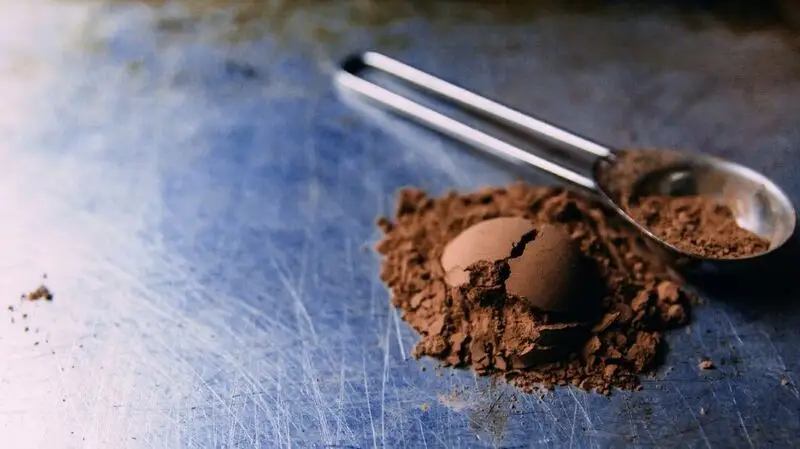
- In a new study, researchers examined whether cocoa extract supplements have an impact on age-related inflammation, which is linked to heart disease and other chronic illnesses.
- The researchers found that 500 mg of daily cocoa extract supplements slowed increases in a key marker of inflammation.
- These benefits were strongest in individuals with higher baseline or existing inflammation at the start.
As people get older, they are likely to develop chronic Health issues, including cardiometabolic, neurodegenerative, and bone diseases.
According to the
A new study led by a doctor from Mass General Brigham looked into how cocoa extract supplements can impact inflammation markers.
The study findings showed that taking cocoa extract supplements regularly for two years can improve inflammation markers. The findings appear in the journal Age and Ageing.
Inflammation markers are substances in the blood that signal the presence of inflammation in the body. Some diseases (associated with or caused by) chronic inflammation include:
- heart disease
- stroke
- type 2 diabetes
- Alzheimer’s disease
- rheumatoid arthritis
The researchers focused on cocoa extract supplements in relation to inflammation markers because it is high in flavanols, which are plant-based antioxidants.
Since the primary flavanol in cocoa extract was previously found to improve cardiovascular health, the researchers in the new study wanted to further examine how cocoa extract supplements affect specific inflammation biomarkers over a longer period of time.
The study focused on older adults: women aged 65 and above, and men aged 60 and above. The researchers tracked three inflammation markers over two years, as well as an anti-inflammatory protein and an immune-mediating protein.
The researchers collected blood samples at the beginning of the study, at the one-year point, and at two years to assess for inflammation biomarkers. The participants took 500 mg of cocoa extract supplement daily.
After analyzing the blood samples and comparing inflammation levels at the beginning and end, the results showed that cocoa extract supplements can help reduce age-related inflammation.
Each year, people who took cocoa extract saw their levels of
The supplement also boosted levels of interferon-γ, a protein involved in the immune system, by nearly 7% per year compared with those taking a placebo.
However, the cocoa extract didn’t make a clear difference in other inflammation-related markers. The inflammation marker IL-6, which can contribute to heart disease, was reduced slightly in women, but not in men.
“We are not sure why the inflammaging effects of cocoa extract only resulted in statistically significant improvements in hsCRP and not for the other 4 markers evaluated,” lead study author Howard Sesso, ScD, MPH, of Brigham and Women’s Hospital, told Medical News Today.
Sesso explained that of the inflammation markers tested, hsCRP is the marker most likely to be influenced by “lifestyle factors and medications such as statins.”
Another interesting finding was that the benefits of cocoa extract supplements were more pronounced in people with higher baseline inflammation.
While the cocoa supplement study findings show that it can reduce inflammation markers related to aging, the researchers noted that further research is needed since the study participants were predominantly white.
Raj Dasgupta, MD, Chief Medical Advisor for Sleepopolis and an ABIM quadruple board certified physician specializing in internal medicine, pulmonology, critical care, and sleep medicine, gave MNT his thoughts on the study.
Dasgupta called the study results “encouraging” and explained the importance of the findings.
“hsCRP is one of the most widely used and well-characterized inflammatory biomarkers for predicting cardiovascular risk,” Dasgupta said. “Elevated levels are associated with a higher risk for things like heart attack and stroke.”
Dasgupta noted that the decrease in hsCRP isn’t a “guarantee of protection,” though.
For people concerned about whether cocoa extract supplements are safe, Dasgupta noted that long-term use of these supplements has not been thoroughly studied and that people should consult with their physicians.
Who should not take cocoa supplements“Cocoa does contain compounds that can act a bit like stimulants. If you’re on medications or sensitive to caffeine, it’s a good idea to check with your doctor before starting a supplement.”
— Raj Dasgupta, MD
While the cocoa supplements did drop hsCRP, Dasgupta said the findings are “one piece of the puzzle.”
“Lifestyle habits like your diet, exercise, sleep, and not smoking are always the foundation,” noted Dasgupta. “Right now, I’d put [cocoa supplements] in the promising add-on category rather than a core strategy.”





